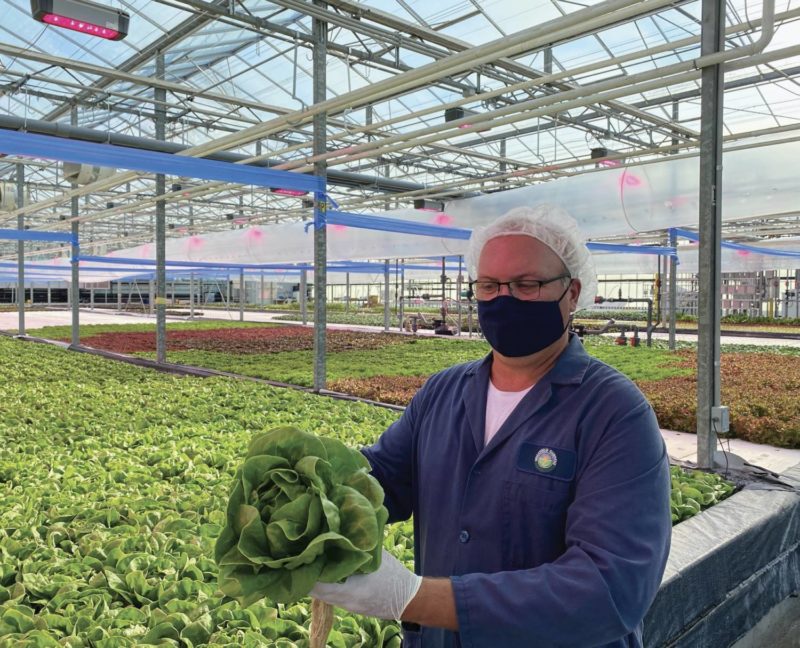
How Well Is Your Company Handling the Pandemic?
You would be hard-pressed to find an industry — including horticulture — that has not been impacted by the COVID-19 pandemic. While many growers and retailers have seen an increase in business, others have had to scramble to find new customers and the supplies necessary to keep operating.
Scrambling to Find New Customers
Wheatfield Gardens in North Tonawanda, New York, operates a 12.5-acre greenhouse facility producing leafy greens, herbs and industrial hemp for cannabidiol (CBD) production. The company operates about 5.5 acres of greenhouse space for hemp production, along with an indoor 2,000-square-foot production area dedicated to hemp and cannabis production. The indoor facility is equipped with LED lights and is used to conduct a variety of equipment, lighting, and fertilizer trials.
Wheatfield Gardens operates a 1.6-acre greenhouse section equipped with a deep water culture system where it produces lettuce, basil and other culinary herbs, including dill, Swiss chard, and high-value leafy greens.
Prior to the pandemic, Wheatfield Garden sold most of its vegetables to local foodservice companies including restaurants. The company also participates in the New York State Farm-to-School Program supplying all of the leafy greens to the Buffalo Public Schools.
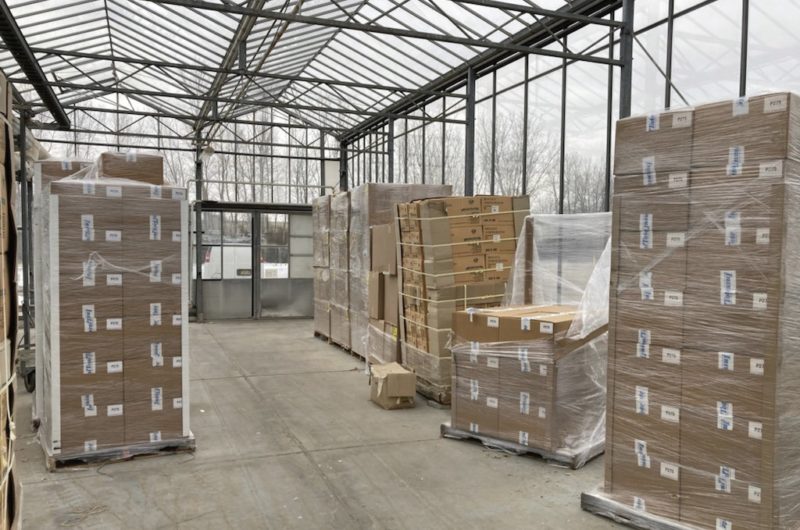
“The pandemic really hurt us with the shuttering of every restaurant in New York State,” said Paal Elfstrum, CEO at Wheatfield Gardens. “These restaurants still haven’t recovered. We’re at 50% of our pre-pandemic numbers with food service. Prior to the pandemic 80% of our sales was food service. When the pandemic hit the sales to restaurants and schools went to zero overnight.
“Fortunately for us, Tops Friendly Markets has a commitment to sourcing local produce when possible. Our sales team showed the grocery retailer that there was value in buying locally produced vegetables. Tops was willing to source local product that lasts longer, especially shelf-sensitive products like Genovese basil.”
Wheatfield Gardens is now selling 80% retail and 20% food service. With the greenhouse area dedicated to leafy green production, the company can grow enough product for Tops doing 10 turns of lettuce annually.
“We produce the lettuce year-round so it is a good supply chain fit for Tops,” Elfstrum said. “It’s like operating a 12-acre lettuce farm. We’re located 10 miles from the Tops distribution center. By reducing the food miles we can reduce spoilage.”
Need for More Affordable Packaging
The switch from food service to retail has brought new challenges to Wheatfield Gardens. The company has experienced three price increases in one year for cardboard boxes.
“These are standard generic cardboard shipping boxes,” Elfstrum said. “Manufacturers have cited COVID and trucking expenses as reasons for the price increases.
“It’s been the same with plastics. We’ve had problems sourcing anything made with plastic. We have had a difficult time getting the plastic sleeves in which we pack our hydroponic basil. We were told there was a 70-day lead time to receive the sleeves. If we try to shorten the lead time, suppliers have told us we need to order 100,000 sleeves instead of 50,000. This is what’s tough about growing crops like lettuce and herbs, which are a penny margin business, especially at retail. When we experience a penny increase it can affect our margins.”
Wheatfield Gardens is looking for new innovations in packaging, including environmentally friendly hemp-based plastics that it can market and charge a higher price for.
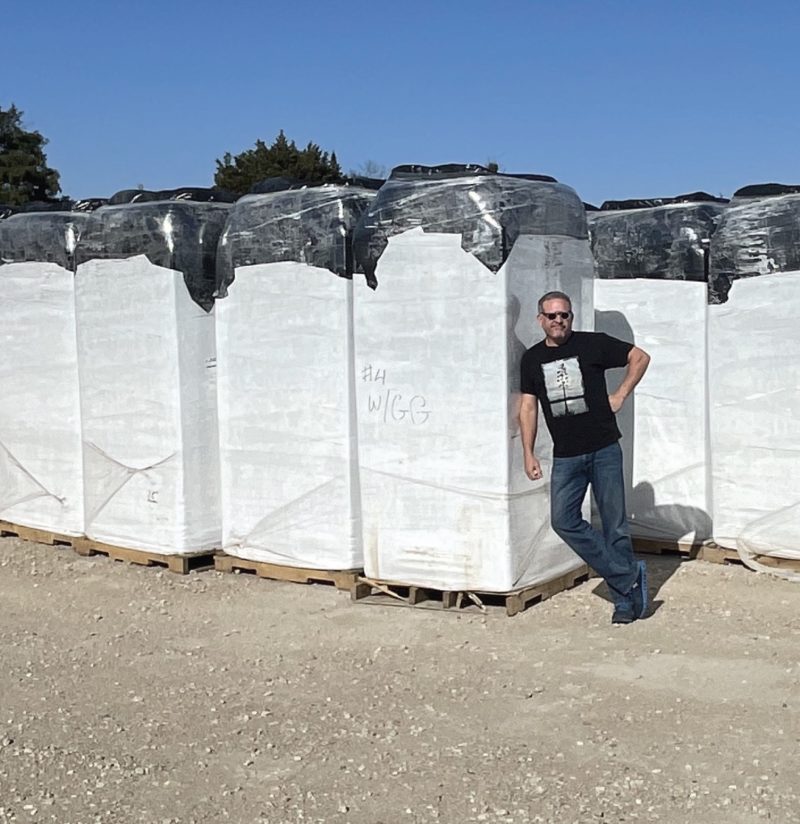
“The prices for cardboard and plastic are becoming a huge part of cost of goods sold,” Elfstrum said. “Packaging costs are approaching the cost of labor per unit sold when talking about retail.
We are looking to add more food service customers to reduce the need for so much packaging. We are trying to find a niche in food service to supplement our consistent year-round retail sales.”
Buying Locally and in Bulk
Elfstrum said it has been particularly difficult to source products that come from overseas, including the growing media used to produce hemp crops.
“We grow our hemp in coir and we were sourcing it from Southeast Asia,” he said. “We’ve asked our customers to buy locally from us so we decided to source our growing media locally. We are purchasing a coir-based medium from bio365, which is located in Cortland, New York.
“Part of buying locally also has to do with reducing shipping costs. Purchasing the media has really heightened our focus on trying to source things locally and keeping an adequate amount of supplies on hand.”
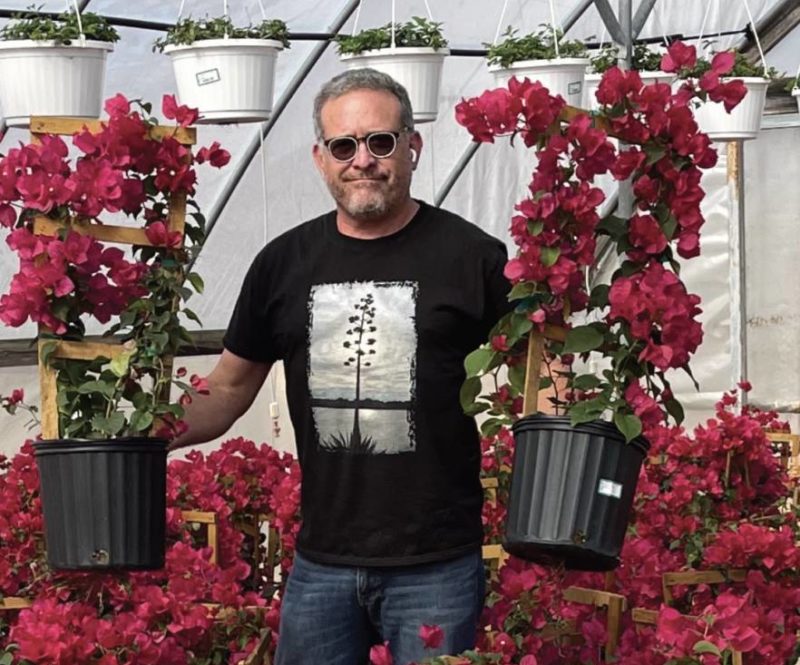
Elfstrum said availability has been a big issue for products that are purchased from overseas.
“Some growers have had issues with fertilizers,” he said. “It’s not only a case of price increases, but also availability. We were ahead of the game for this season with fertilizer and bought in large quantities which we were able to store in unused sections of the greenhouse.”
Anything equipment-related has also been a challenge to source.
“We try to ensure we have spare replacement parts on hand for our equipment such as pumps and any other moving parts,” he said. “We have really tried to enhance stocking spare parts for a lot of our key equipment.
“On the equipment side, growers need to implement an aggressive preventive maintenance plan, as well as stocking multiple spares of key pieces of moving equipment, including pumps and fans. Having a preventive maintenance plan and spare equipment program can help to avoid or mitigate any catastrophic failures.”
Customer Loyalty Benefits
Matt Ruibal, owner of Ruibal’s Plants of Texas in Dallas, said being a loyal customer to suppliers has definitely helped in sourcing a variety of products used to produce its annuals, perennials, groundcovers and tropical plants. The company operates three greenhouse facilities totaling 700,000 square feet.
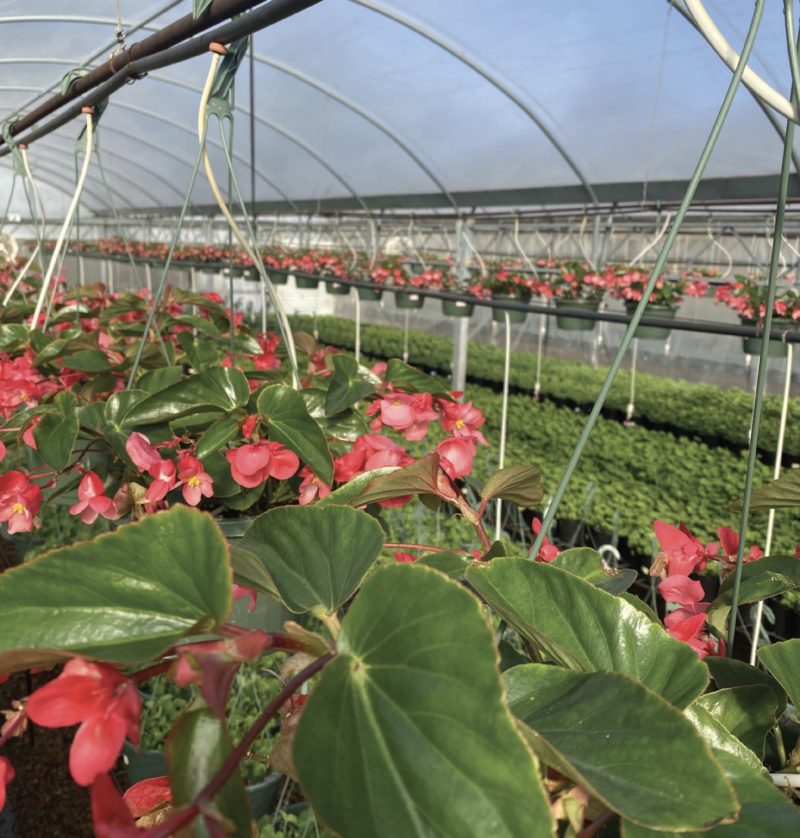
of Ruibal’s
of Texas)
Ruibal’s grows retail quality plants selling 65% of its crops to wholesale customers, which are primarily landscapers, and the other 35% through its five retail stores. The production is geared to its retail market.
“Since we are loyal customers to our suppliers, our seniority has helped us receive what we needed when we needed it,” Ruibal said. “But we have had to order way in advance with all of our supplies. As of yet we have not had any issues receiving most of the supplies we’ve needed.
“All of the products for this year’s spring sales were ordered last June and July. We order about six months ahead of the season. I also order about 20% more of what I would normally order. I give myself enough of a cushion because there can be trucking delays or other types of delays and ordering in advance allows us enough time to get what we need.
Ruibal said he has been dealing with some of the same suppliers for over 25 years.
“They know for the most part what we are going to buy,” he said. “We always pay our bills on time. They have really tried to fill our orders and we really appreciate that.”
Planning Ahead and Communicating
One product category which Ruibal has encountered delays with is plastic containers.
“It has been difficult to purchase plastic containers, but especially larger sizes like 1- and 3-gallon,” he said. “I haven’t had any issues trying to purchase standard containers like black pots. But we like to have our brand on the containers. We also have our brand on our labels as well.
“Some of our containers are manufactured in Southeast Asia. They’re running at least six months out if not further. The container manufacturers can’t guarantee when the product is going to arrive. Previously we paid $7,000 in shipping and now we are paying $25,000 just for the shipping. You definitely have to plan way ahead because you don’t know what you’re going to get and when you’re going to get it.”
Ruibal is doing much more communication with the suppliers to make sure products are going to be shipped on time.
“Most of our suppliers keep us informed as to the status of our orders,” he said. “But I also keep in touch with them to make sure that the product is going to ship on time and going to hit the delivery date. I expect them to contact me if anything changes, but I’m also contacting them to ensure the product is going to ship on time. Growers should stay in communication with their salespersons and other company officials to be sure their orders are going to be shipped and delivered on time. Fortunately, we haven’t had to alter any of our production or crops due to product shortages or availability.”
For more: Wheatfield Gardens, 716. 694.0085; Info@wheatfieldgardens. com; www.fifthseasonfresh.com; Ruibal’s Plants of Texas, 972.286.5270; Matt@ruibals.com; http://ruibals.com.









 Video Library
Video Library 


















